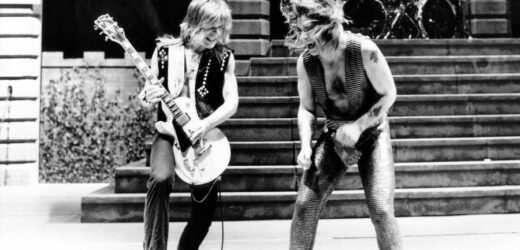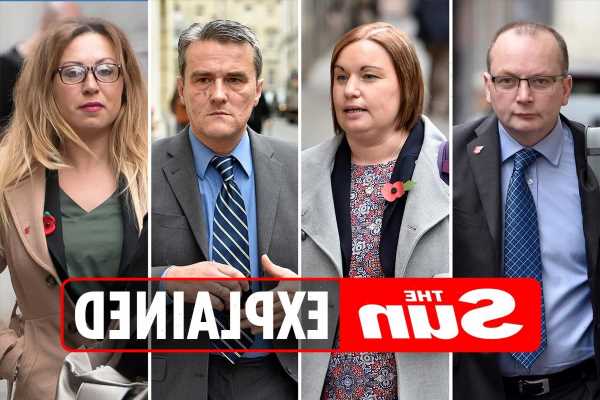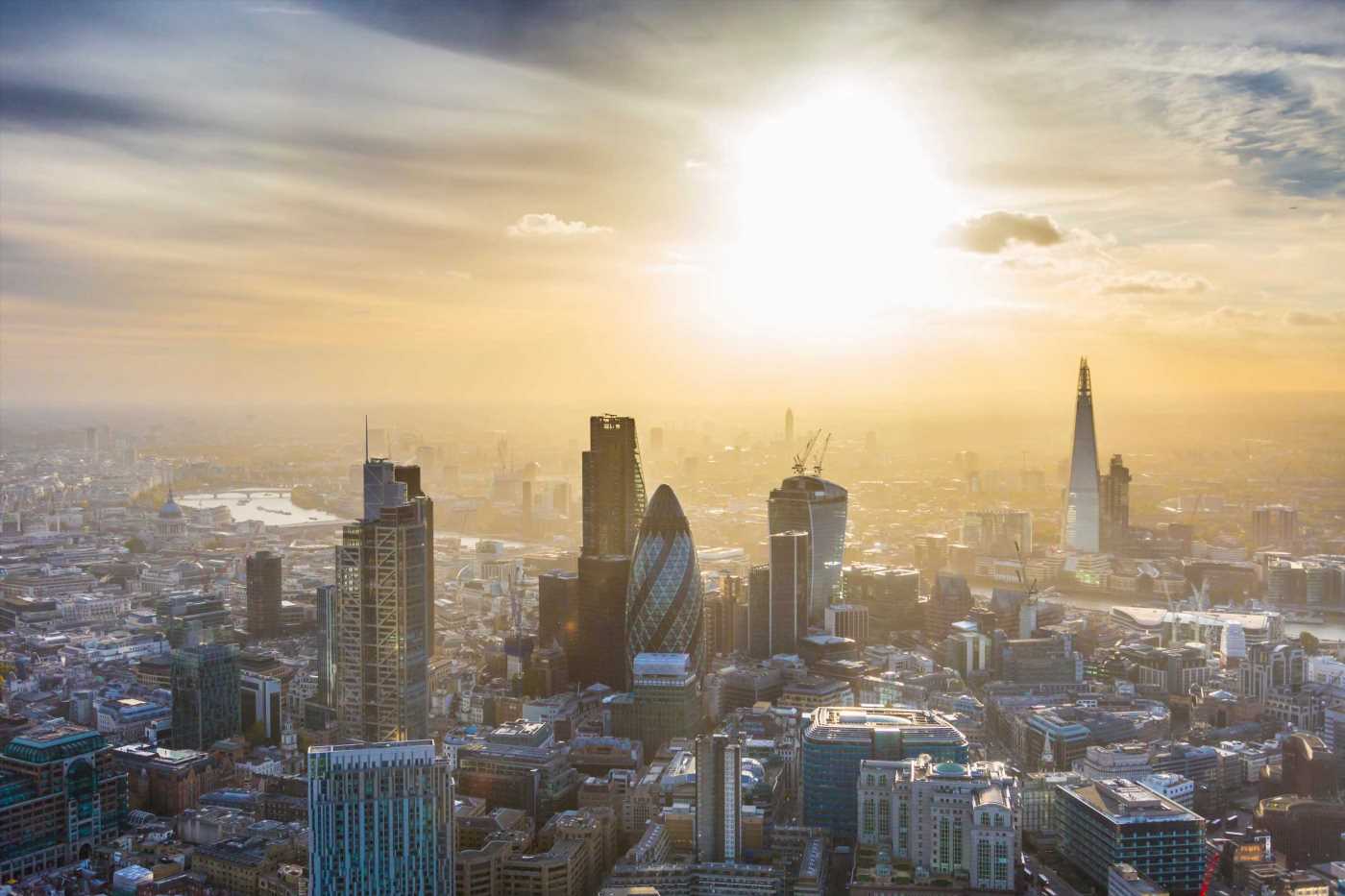Randy Rhoads’ masterful guitar solos and unique approach to heavy-metal riffing, which drew more influence from Bach than Black Sabbath, made him an instant guitar legend with the release of Blizzard of Ozz, Ozzy Osbourne’s 1980 solo debut. He’d spent the previous couple of years struggling in an early lineup of Quiet Riot — the two records he recorded with them came out only in Japan — so the success of the album and its hit single, “Crazy Train,” was a feat both for him and for Osbourne, who was at his lowest point following his dismissal from Black Sabbath. Osbourne needed to hear only a few seconds of Rhoads warming up at an audition for him to offer the guitarist the job, and the pair formed an immediate bond. Together, they developed a vision for Osbourne’s solo music that has endured ever since.
Related Stories
Watch Ozzy Osbourne, Liam Gallagher Talk Rockfield Studios in Upcoming Doc
Bassist Rudy Sarzo on His Years With Ozzy Osbourne, Quiet Riot, Whitesnake, and Dio
Related Stories
The Beatles in India: 16 Things You Didn't Know
Alan Jackson: 20 Best Songs
But tragically, their time together was short. Rhoads died in a freak plane accident on March 19th, 1982, at age 25 while the band was touring in support of its follow-up to Blizzard, Diary of a Madman. Osbourne struggled with the loss but pressed forward, continuing to perform many of the songs they’d written together — “Crazy Train,” “Mr. Crowley,” “I Don’t Know” — at his concerts in the decades since, ensuring their place among heavy metal’s most treasured anthems. He honored Rhoads’ legacy in 1987 by releasing the double live LP Tribute, a collection of concert recordings from the Blizzard and Diary tours that showcases Rhoads’ virtuosity, especially in the extended solo for “Suicide Solution.” The album features a photo of Osbourne triumphantly hoisting Rhoads into the air on its sleeve.
Over the years, the music world has repeatedly recognized Rhoads’ effortless playing and his unique neoclassical approach to heavy metal. Guitar magazines have long featured him on lists of the most talented musicians ever to pick up the instrument, and Rolling Stone placed him in the upper echelons of its own ranking of the Greatest Guitarists of All Time. Now the Rock & Roll Hall of Fame is recognizing Rhoads’ talent by posthumously inducting him in its Musical Excellence category.
“It’s a long time coming, but he got there in the end,” Osbourne says. “He was a great player. … I mean, the guy should be still alive. The way he died was a terrible thing.” Here, the singer reflects on the guitarist who helped him start over. “I owe my career to him,” Osbourne says.
When I first met Randy Rhoads, I thought he was a chick. I was absolutely smashed out of my face in Le Parc Hotel in Los Angeles. Dana Strum from the band Slaughter had introduced me to him. Randy came in and he was this little guy of about 96 pounds wet. And I said, “This guy can’t hold a fucking guitar up, let alone play one.” But when I heard him play, I said, “I don’t know if I’m smoking some serious stuff or this guy’s better than any guy I’ve ever heard.” He was great. He was kind of like a gift from God.
His demeanor was kind of cool. He wasn’t flashy. Everybody back then was copying Jimi Hendrix. And then I found out that he was a teacher in his mother’s music school, which is a big plus for me because he had a lot of patience. When I flew him to England, he lived in my house with me when I was married to my ex-wife, and then I moved into an apartment in London with him. I’d be fucking drinking beers and getting loaded all day long, and I’d see him, and he would be taking guitar lessons.
When we wrote music together, he gave me space and time. He worked out what keys would be better for me to sing in. When I was with Sabbath, they would just give me a riff, and I’d have to struggle with putting vocal melodies on ’em. But Randy Rhoads was very easy to work with. I remember when we started to write “Goodbye to Romance,” and he said, “You know what? It will be better if we played it in this key.” And I said, “OK.” And it was. He was very, very helpful.
When we wrote Blizzard of Ozz, we were at a place in Monmouthshire, Wales, where we used to go with Sabbath. You can live in there, they’d feed you, and they have a rehearsal room. And we’d just be like a rock band, musicians doing our thing. I remember writing “You Looking at Me, Looking at You” and “Crazy Train” with him and Bob [Daisley, bassist] there. One day, Randy came up to me and said, “Would you mind if I did this classical piece for my mom?” I said, “Absolutely. Go ahead.” That became “Dee.” That album was very special for me.
All the guitar players back then were doing finger-tapping like Eddie Van Halen. And Randy did it, but he was a very clever player. He’d put that in with a bit of classical music, then a bit of blues music. He wasn’t a big Black Sabbath fan, but he liked [Mountain guitarist] Leslie West and a whole array of people. I remember when Randy did the solo for “I Don’t Know,” my head spun around on my shoulders. And the solo at the end of “Mr. Crowley” was awesome; it’s in the same category as Pink Floyd’s “Comfortably Numb.” When you hear something like that, you know you’ve discovered somebody who is a somewhat more-than-normal guy.
On days off, he would get the roadies to drive him around. He probably saw more of Great Britain than I ever have. And he had a hobby: He used to love these little miniature train sets and he’d collect them. But most days, he would get the Yellow Pages out, and he would phone up a classical guitar player for a lesson in his room. He’s probably the truest musician I’ve ever played with.
He was a very quiet guy most of the time, but he did have a funny side. I remember one time we were in a hotel bar on a day off, and there was a guy playing classical piano. He goes up to the guy and he said, “Would you mind if I accompany you?” And the guy said, “Oh, that’d be fine.” He comes down with a little Pignose amp, starts to play classical guitar with the guy, and the guy was really impressed. Suddenly, Randy starts to do the rock moves, like Pete Townshend. It was hilarious.
When he would play me something new, the hairs on the back of my neck would stand up, and I’d go, “Fuckin’ hell. I don’t know what’s going on with you, but that’s really good.” I remember going to the apartment one day and he said, “What do you think of this?” And it’s the “Over the Mountain” riff. And I go, “That’s fucking amazing.”
I remember he worked especially hard on the solo to the song “Diary of a Madman.” He had recorded a take and then he came out of the studio and said, “I’m not happy.” I said, “I’ll tell you what, Randy. You go in there and you can spend as much time as you fucking want to. Remember this, if you let something you’re unhappy with go, it will haunt you for the rest of your life. Every time you hear that song, you’ll get pissed off.” So he went in there on a Thursday or Friday night, and he spent the whole weekend there. He lived in the studio for, like, two days. Then on the Sunday, he came out with a big grin and he said, “I think I’ve got it.” He was so happy with that solo.
When we toured, me and him worked so well together onstage. I’d pick him up on one arm. He was a lightweight guy, so I could pick him up quite easy. There’s a photo of that on the cover of Tribute, but I have to say I’ve never played that record. I can’t play it.
If you remember, I put out a live album of Sabbath covers called Speak of the Devil [in 1982]. That’s because we had a contractual obligation to give the label the live album Tribute, but I wouldn’t do it. I didn’t want the fans to think I was cashing in on Randy’s death. Since I was contractually obligated to release a live album, I went into a club in New York and recorded Speak of the Devil. Sabbath thought I did it to fuck them up; I didn’t even know they were doing their live album [Live Evil].
After gigs, Randy was always playing his guitar. He was always sitting on the bus with his guitar, writing his own thing [in music notation]. I don’t know what it was called. His mother tried to decipher his writing, and she couldn’t make heads nor tails of it.
I must have a sixth sense or something, but I kind of knew that he wouldn’t make old bones. Some people are just too good. He didn’t take drugs. He didn’t drink much. We [in the band] were all like pirates, and he would say to me, “Ozzy, you’re gonna kill yourself.”
On the last journey we had together, going from Knoxville, Tennessee, to Orlando, Florida, I was on the bus, and he said to me, “I want to quit rock & roll.” I said, “You want what?” He was the type of guy who would want to move on to something else once he experienced something. I said, “Are you joking?” He said, “No. I want to get a degree at UCLA.” I said, “Carry on the way you’re going, you’ll be able to buy UCLA.” That was the last conversation I had with him. And 12 hours later he was dead. As I’m thinking about it now, my mind is running the tape in my head of that day. Every time I talk about it, I’m back there. It’s just one of the saddest parts of my life.
After he died, I had the awful thing of going to two funerals in one week [for Randy and wardrobe assistant Rachel Youngblood, who also died in the crash] and it fucking killed me. Since then, I can’t go to funerals. I never went to my mother’s funeral; I never went to my sister’s or my brother’s funeral. Something happened to me at them funerals.
I was kind of emotionally wounded after Randy died. It took me until No More Tears to get back on the right path with recording. He died really young, and he didn’t deserve to die. It’s really strange for me to sit here and reflect. Like, fucking hell, 40 years, it seems like it was yesterday.
I knew him for a very short amount of time. But what he gave me in that short amount of time was immeasurable in fucking greatness. To get somebody like Randy Rhoads to play on two albums, and for those two albums to sound as good as the day they were recorded, is something else. And I’m forever in gratitude for that. God only knows where that man would be today. The very fact that he’s not here to breathe the air is just a fucking crime.
Thank God that he’s getting recognized by the Rock & Roll Hall of Fame. He finally got there in the end. I’m sad that his mother was not alive to see it, because he was very close to his mom. I know his brother, Kelle, and his sister, Kathy, are going to be really chuffed about it. It shows that he’s not been forgotten. He was a dedicated, true musician, and he was a lovely guy. I still think about him all the time.
Long live Randy Rhoads, the King!
Source: Read Full Article



